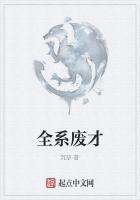The food we eat seems to have profound① effects on our health. Although science has made great steps in making food more fit to eat, it has, at the same time, made many foods unfit to eat. Some research has shown that perhaps eighty percent of all human illnesses are related to diet and forty percent of cancer is related to the diet as well, especially cancer of the colon.
That food is related to illness is not a new discovery. Several decades ago, researchers realized that some food additives caused cancer. Yet, these carcinogenic② additives remain in our food. The additives③ which we eat are not all so direct. Farmers often give penicillin to beef and poultry. And because of this, penicillin has been found in the milk of treated cows. Sometimes similar drugs are administered to animals not for medicinal purposes, but for financial reasons. The farmers are simply trying to fatten the animals in order to earn more money.
Generally speaking, man is food conscious but not very nutrition wise. He often lacks an appreciation for the relationship between nutrients④ and physical and emotional health; and he is easily misled by custom, incorrect information, and beliefs in superstitions⑤. Patterns of eating are influenced by culture, family background, and knowledge of the science of nutrition. Since eating is characteristic in cultures, people from different cultures are more prone to suffer from certain illness.
① profoundadj. 深深的;深刻的; 深奥的 n. 【书】深渊;深海;(灵魂)深处
② carcinogenicadj. 【医】致癌物(质)的
③ additiven. 添加剂;添加物 adj. 附加的
④ nutrientn. 营养物,滋养物 adj. 营养的,滋养的
⑤ superstitionn. 迷信;迷信行为;盲目崇拜;盲目恐惧
食物与健康
我们所吃的食物对健康有着深远的影响。虽然科学已采取了极大的措施使食物更宜于食用,但与此同时它也使得许多食物不适宜食用。一些研究表明,人类百分之八十的疾病可能与饮食有关,而百分之四十的癌症同样与食物有关,特别是结肠癌。
食物与疾病有关并非新发现。数十年前,研究人员就意识到某些食物添加剂会导致癌症。然而,这些致癌添加剂仍存留于我们的食物中。我们所摄取的添加剂并非都这么直接。农民常给牛和家禽用青霉素,因而在经过治疗的牛所产的奶中已发现有青霉素。有时,给动物用药并非出于治疗的目的,而是基于经济上的原因。这些农民只是挖空心思地使家畜长肉添膘,以便能多赚点钱。
总的来说,人类有食物意识,但比较缺乏营养意识。他对于营养与生理和心理健康之间的关系常常缺乏正确地评鉴。因此,他很容易受到风俗习惯、错误信息和迷信的误导。人类的饮食模式会受到来自文化、家庭背景以及营养学知识等方面的影响。由于饮食有其文化特征,来自不同文化的人往往具有易患某些疾病的趋势。















